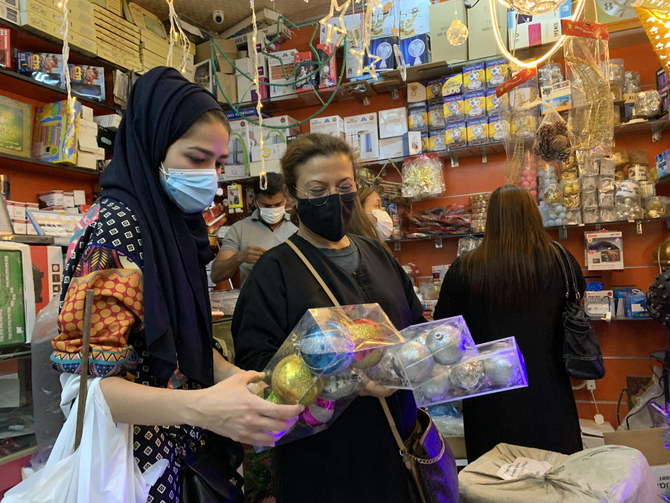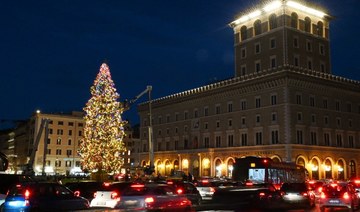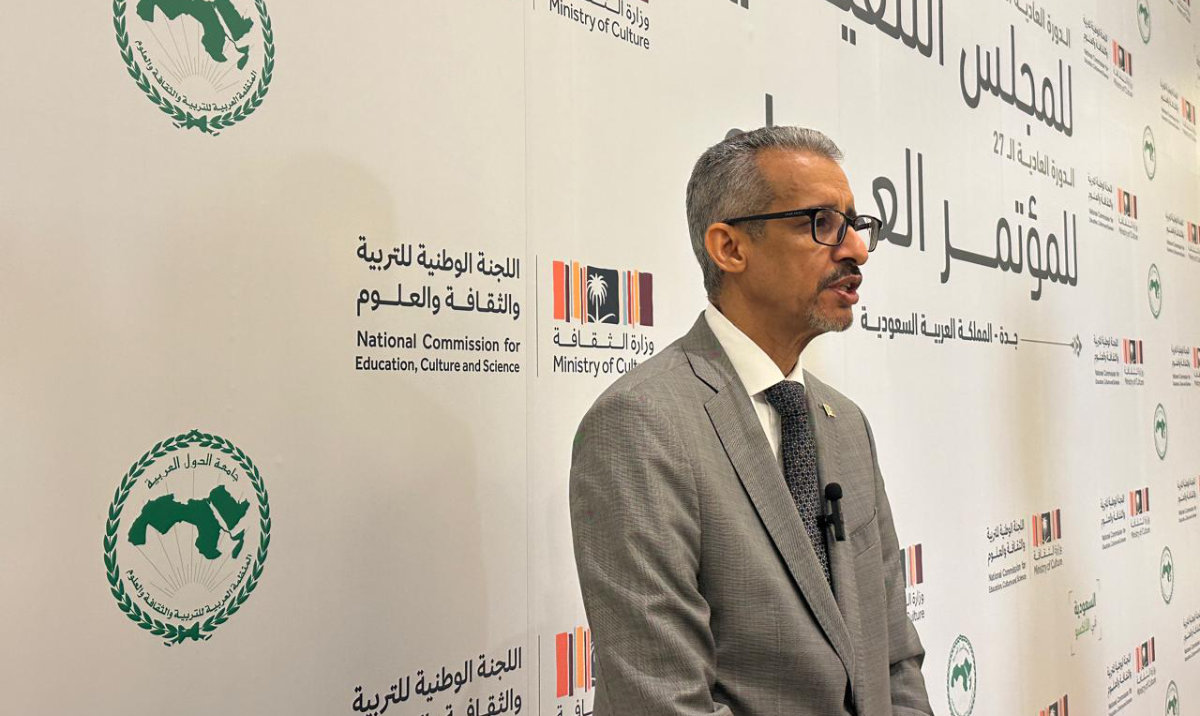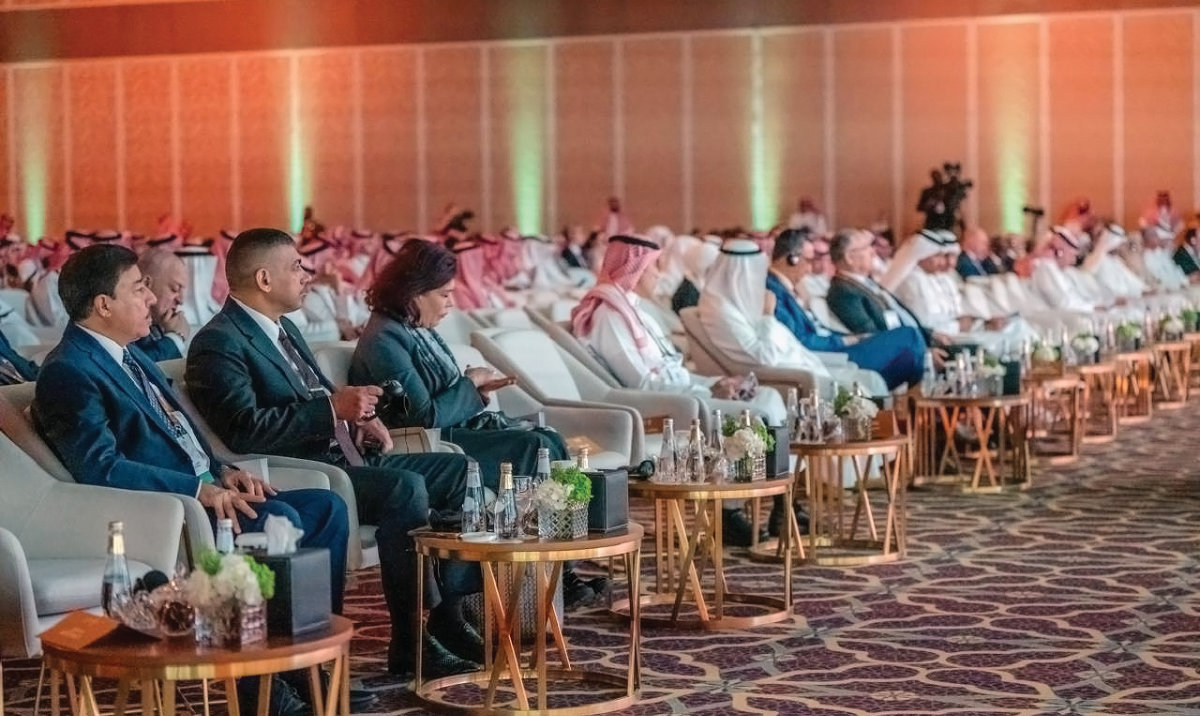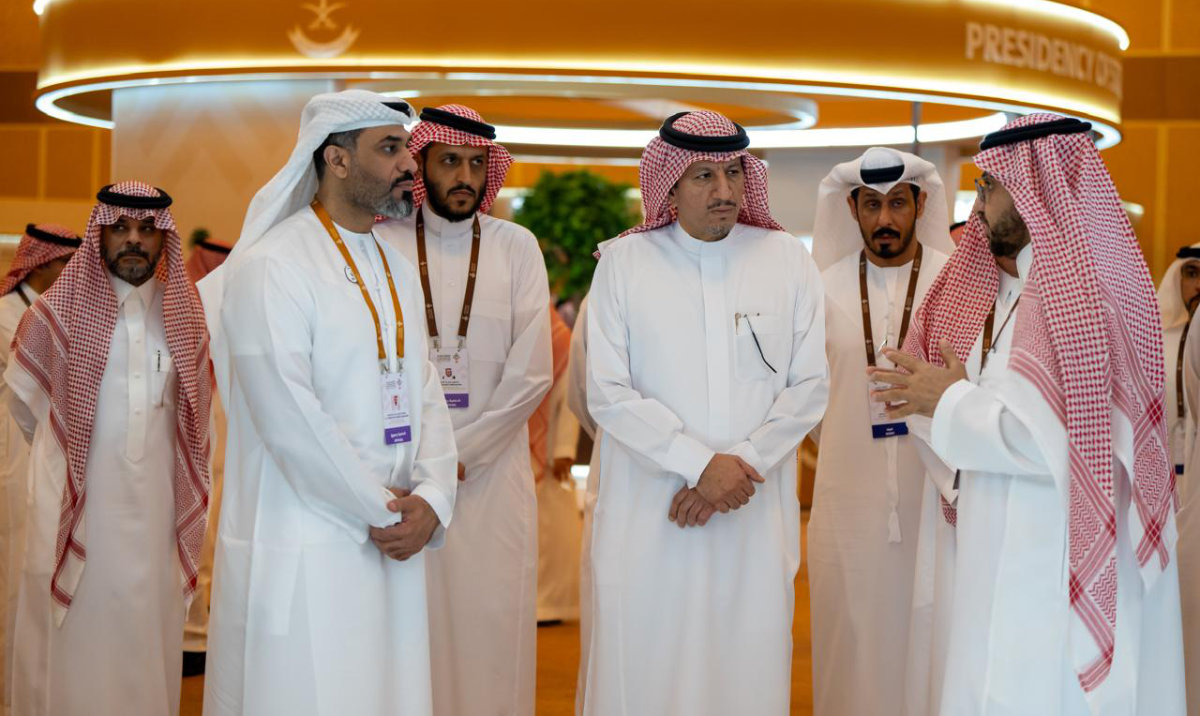RIYADH: With the growing number of foreign tourists and expatriates arriving in Saudi Arabia, a trend towards greater openness and tolerance for the festive season has become an essential part of the Kingdom’s reform agenda.
Sydney Turnbull, a US citizen who has lived in Saudi Arabia for seven years, told Arab News that when she first arrived, Christmas was a holiday that was strictly celebrated behind closed doors.
“You heard stories of people smuggling in Christmas trees and celebrating privately, but you never saw decorations or colorful festive lights outside like you did back home in the United States,” she said
However, all of that has changed in the past few years, with holiday displays springing up in shop windows and gift products lining the shelves.
“This year, in particular, is perhaps the most public display of Christmas,” Turnbull said. “From seeing cafes and restaurants transformed into winter wonderlands, bejeweled snowmen, decorations, and ornaments for sale, and Starbucks offering holiday beverages in their holiday-themed cups, which is the same my friends and family have back home.
“My jaw dropped when I saw that Bateel (a local cafe and restaurant) now offers an advent calendar. Yesterday, I received an email from a top restaurant here in Riyadh offering a New Year’s Eve celebration. This would have been unheard of just a few years ago.”
Enrico Catania, a 35-year-old Italian resident of Jeddah, told Arab News this year’s celebrations will be slightly different due to the COVID-19 pandemic and the resulting travel restrictions. He will be spending it with friends as usual, but will not be seeing family.

Expats and citizens alike are able to share in the festivities, a testament to the work that has gone into the opening up of Saudi Arabia to people and businesses around the world. (Supplied)
Nevertheless, the growing openness to Christmas celebrations in Saudi Arabia means he will feel more at home.
“We always enjoyed it with nearest and dearest, but there’s been a perceptible easing since 2015 in celebrating a culture that was almost disallowed in the periods leading to 2015,” Catania said.
“I would say though in general, and in recent times, awareness and acceptance of such cultural customs are increasing despite the cultural differences,” he added.
Turnbull has also noticed many more expats openly celebrating the holiday in Saudi Arabia this time around.
“My Saudi colleagues even gifted me Christmas presents, an incredibly kind and thoughtful gesture, and just another example of how warm and welcoming the people are here.”

Expats and citizens alike are able to share in the festivities, a testament to the work that has gone into the opening up of Saudi Arabia to people and businesses around the world. (Supplied)
She will even sit down to a traditional Christmas lunch with Saudi friends and expats who she considers a second family.
“After that, I’ll likely spend the night watching classic Christmas movies with a mug of hot chocolate and FaceTiming family and friends to wish them a merry Christmas.”
Meanwhile, Ashwag Bamhafooz, a Saudi housewife from Jeddah, said she has been invited to spend Christmas with her husband’s friends from the Philippines.
“My mother’s family, even though they are Sunni Lebanese, celebrate Christmas and give each other gifts,” Bamahfooz said.
“I feel like it’s ok to celebrate Christmas and New Year like we celebrate the Hijri year,” she said, adding that she is excited about the Kingdom’s move towards greater tolerance and acceptance of others.

Expats and citizens alike are able to share in the festivities, a testament to the work that has gone into the opening up of Saudi Arabia to people and businesses around the world. (Supplied)
Indeed, the Kingdom is eager to encourage a culture of tolerance for different ideas and ways of doing things, not merely to create a welcoming atmosphere but to celebrate the value of difference and diversity.
Muneerah Al-Nujaiman, an English teacher at Princess Nourah University, told Arab News that many Saudi people seem to have misunderstood the idea of tolerance.
“I strongly believe in cultural tolerance, which means to allow Christian people to celebrate their own religious beliefs in Saudi Arabia. However, I don’t celebrate them myself as they do not reflect my religious or cultural identity,” Al-Nujaiman said.
“Acceptance of religions means we do not fight them or prevent them from celebrating their holidays, because when I was in their country, they used to give us the freedom to pray and worship, but acceptance does not mean celebration.
“Unfortunately, now those who do not celebrate Halloween and Christmas are not accepted, and this concept is wrong. Western people have not accepted nor included our festivals in their culture, and they see freedom as a strong symbol. It is nice for one to separate their cultural identity and religion from the rest of the people because this reflects the strength of a particular society,” Al-Nujaiman added.
With the religious police out of the picture, the Kingdom has paid great attention to encouraging coexistence, acceptance, and assimilation of foreign cultures in society, so that visitors and expats are not excluded or forced to take on customs which are not their own.
Mawia Al-Hazim, a Saudi dentist, used to study in New York and says she has missed the Christmas atmosphere since returning to the Kingdom.
“I don’t celebrate it religiously because I am Muslim, but being part of other people’s happiness and joy is always a nice thing. I’ve been invited here to many Christmas events.”
Al-Hazim says she is tempted to host a holiday event herself and even put up a Christmas tree, but has struggled to find decorations in local stores.
Turnbull had to go online to find her decorations. “Thanks to online retailers, it’s incredibly easy to find decorations here in Saudi,” she said. “The once rare Christmas tree, ornaments, lights, and stockings are just a click away. I think I purchased just about every holiday candle I could find. My apartment currently smells like a Christmas tree farm of freshly cut balsam firs.”
Rodolfo Negro, 26, an Italian resident of Jeddah, said he is planning a small family gathering this year.
“Christmas celebrations haven’t changed as we celebrate it at home as we always do,” Negro said.
“However, I must say that there are many more Christmas decorations around the city, and they are selling the decorations more openly than before. Unfortunately, the stock ran out, meaning many people purchased the decorations. So, I believe more non-Christians started celebrating.”
Seeing the transformation taking place in the Kingdom has encouraged Turnbull to invite her parents to visit for the first time.
“Now feels like the perfect time to show them the country I’ve called home for so long and all the treasures it has to offer,” Turnbull said.
“My dad is most looking forward to golfing at the Royal Greens Golf and Country Club, and my mom can’t wait to explore the souks.”






